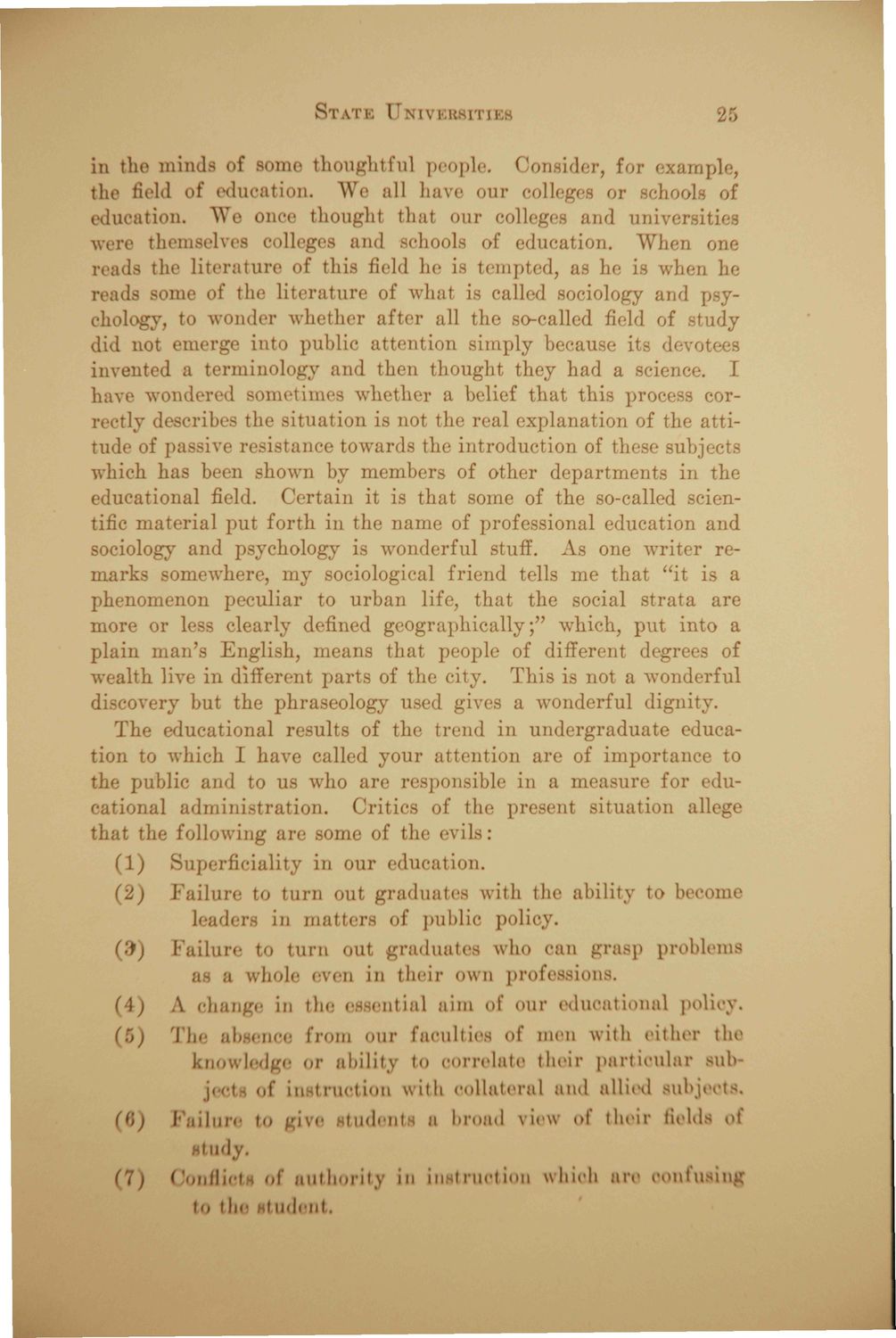Caption: Booklet - Kinley Speech Cirrculum and Consequences (1924)
This is a reduced-resolution page image for fast online browsing.

EXTRACTED TEXT FROM PAGE:
STATIC UMVKICM I II.S in the minds of some thoughtful people. the field of education. Consider, for example, W e all have o u r colleges or Schools of duration. We once thought that our colleges and universities were themselves colleges and schools of education. When one reads the literature of this field he is tempted, as lie is when he reads some of the literature of what is called sociology and psychology, to wonder whether after all the so-called field of study did not emerge into public attention simply becau - devot< 3 invented a terminology and then thought they had a science. I have wondered sometimes whether a belief that this process corr tlv (i -eribes the situation is not the real explanation of the attitude of passive r< [stance towards the introduction of these subjects which lias been shown by members of other departments in the ducational field. Certain it is that some of the so-called scientific material put forth in the name of professional education and ociology and psychology is wonderful stuff. As one writer remarks somewhere, my sociological friend tells me that "it is a phenomenon peculiar to urban life, that the social strata are more or less clearly defined geographically;" which, put into a plain man's English, means that people of different degrees of wealth live in different parts of the city. This is not a wonderful di overy but the phraseology used gives a wonderful dignity. The educational r ults of the trend in undergraduate education to which I have called your attention are of importance to tli ublic and to us who are responsible in a measure for educational (ministration. Critics of the pr< sent situation all *e that the following are some of the evils: (1) Superficiality in our education. (2) Failure; to turn out graduates with the ability to beconn leaders in matters of public policy. (9) (4) (5) d u n - to t u r n out g r a d u a t e s who can g r a s p a whole even in their own professions. problems A change in the essential aim of o u r educational policy. T h e absence from our faculties of men with either the knowledge or ability to correlate their particular subj. t8 of in ! ruction with collateral and allied subject ((>) (7) ! lilure to give Htudeiitfi a hroad view of their Well* of udy. Conflict! Of nut] Tity in instruction which an t t h e Hi u d e i i l . -onfusing
|